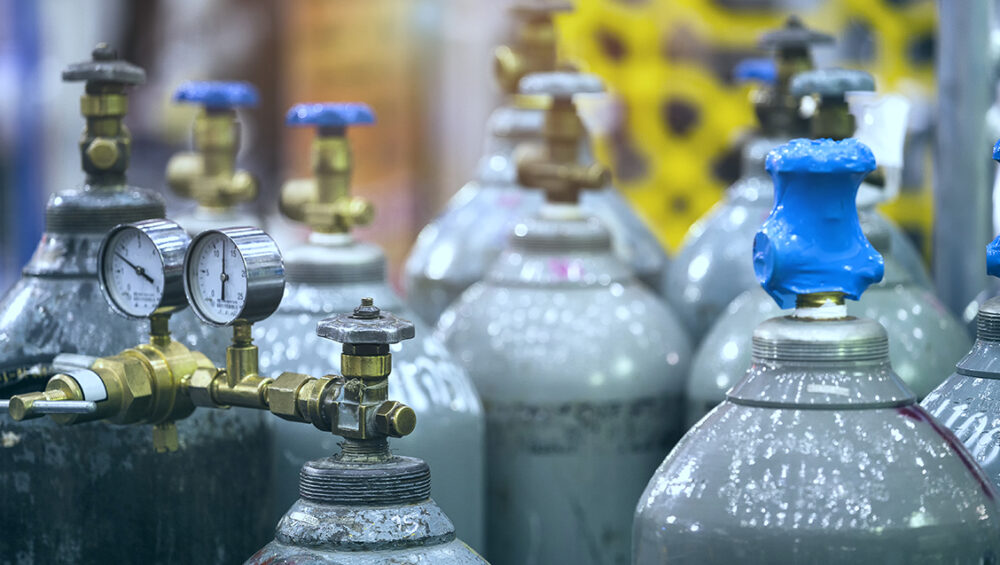Propane cylinders are used for a variety of reasons. You can use them for grilling, heating, powering appliances, and many other activities. These cylinders are essential components in many households and businesses. However, knowing how to properly dispose of these cylinders is an important task for safety reasons. Improper disposal can lead to hazardous situations. It can also result in damage to the environment. Here’s a comprehensive guide on how to properly dispose of refillable propane cylinders.

Understanding Propane Cylinders
Propane cylinders are often referred to as propane tanks. They are made in various sizes and are commonly used for BBQ grills, patio heaters, and other outdoor appliances. They are filled with propane gas, which is highly flammable and must be handled with care. Propane tanks range from small propane tanks for portable stoves to large home propane tanks for heating, so they can serve multiple purposes.
Steps for Proper Disposal
- Check for Propane Delivery Services
Many companies offer propane tank delivery and pickup services. If you search for “propane delivery near me” or “propane delivery service near me,” you’ll find options for businesses that can deliver and take away empty or expired tanks. You can use these services to safely get rid of propane tanks that can no longer be used.
- Contact Your Propane Supplier
If you are unsure of how things work, you can call your propane supplier. The supplier can guide you further and inform you about their cylinder disposal policies. Many propane suppliers have programs in place to take back old tanks for safe disposal.
- Use a Certified Hazardous Waste Disposal Facility
Propane cylinders are considered hazardous waste when they are empty or no longer usable. A certified waste disposal facility might be helpful for you. You can search for “propane near me” or “lpg companies near me” to find facilities that accept propane cylinders.
- Retail Exchange Programs
Many retailers that sell propane also have exchange offers. You can always go and get your old propane tank exchanged for a new one. This is a convenient option for many people, and you should try it out too.
- Local Recycling Centers
Some local recycling centers accept propane cylinders. Check with your municipality’s waste management services to find out if they accept propane tanks. You might need to look for specific information and recycling options.
Safety Practices
When disposing of propane cylinders, you should always choose safe practices.
- Do Not Dispose of Cylinders in Regular Trash: Propane cylinders must never be thrown away with regular garbage! They should not be treated like regular trash items, as they can explode.
- Ensure the Tank is Empty: The tank should be completely empty before disposal. This can often be done by using the propane until it runs out. A special tool is also used to release any remaining gas.
- Inspect for Damage: Before disposal, inspect the tank for any signs of damage or leaks. If you notice any issues, handle the tank with extreme caution. Take the help of a professional for assistance in such cases.
Benefits of Proper Disposal
Proper disposal of propane cylinders has several benefits:
- Environmental Protection: Propane is a clean-burning fuel, but the tanks themselves can be harmful to the environment if not discarded correctly. Proper disposal ensures that the metal can be recycled and the remaining propane is handled safely.
- Safety: Preventing explosions and fires is crucial. Improper disposal can lead to dangerous situations for waste management workers and the general public.
- Legal Compliance: Many regions have regulations governing the disposal of hazardous materials, including propane cylinders. Proper disposal helps you stay compliant with these laws.
Conclusion
Proper disposal of refillable propane cylinders is an essential practice for safety and environmental protection. By utilizing services such as propane tank delivery, contacting your propane supplier, or visiting certified disposal facilities, you can ensure that your propane cylinders are disposed of correctly. Always prioritize safety and follow the recommended steps to prevent accidents and environmental harm.


